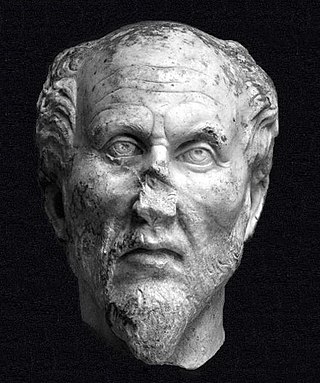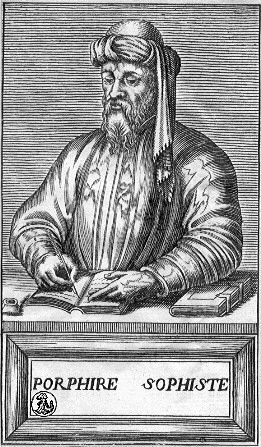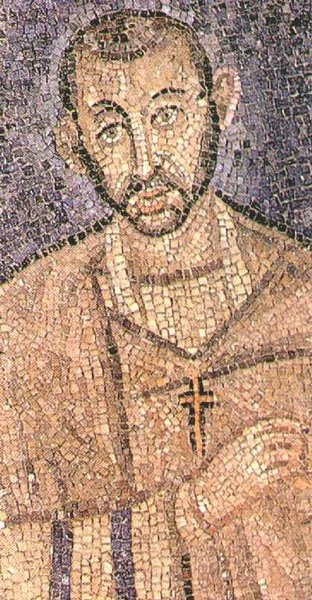
Albert Camus was a French philosopher, author, dramatist, journalist, world federalist, and political activist. He was the recipient of the 1957 Nobel Prize in Literature at the age of 44, the second-youngest recipient in history. His works include The Stranger, The Plague, The Myth of Sisyphus, The Fall and The Rebel.
Ammonius Saccas was a Hellenistic Platonist self-taught philosopher from Alexandria, generally regarded as the precursor of Neoplatonism or one of its founders. He is mainly known as the teacher of Plotinus, whom he taught from 232 to 243. He was undoubtedly the most significant influence on Plotinus in his development of Neoplatonism, although little is known about his own philosophical views. Later Christian writers stated that Ammonius was a Christian, but it is now generally assumed that there was a different Ammonius of Alexandria who wrote biblical texts.

Augustine of Hippo, also known as Saint Augustine, was a theologian and philosopher of Berber origin and the bishop of Hippo Regius in Numidia, Roman North Africa. His writings deeply influenced the development of Western philosophy and Western Christianity, and he is viewed as one of the most important Church Fathers of the Latin Church in the Patristic Period. His many important works include The City of God, On Christian Doctrine, and Confessions.
In the Platonic, Neopythagorean, Middle Platonic, and Neoplatonic schools of philosophy, the demiurge is an artisan-like figure responsible for fashioning and maintaining the physical universe. Various sects of Gnostics adopted the term demiurge. Although a fashioner, the demiurge is not necessarily the same as the creator figure in the monotheistic sense, because the demiurge itself and the material from which the demiurge fashions the universe are both considered consequences of something else. Depending on the system, they may be considered either uncreated and eternal or the product of some other entity. Some of these systems are monotheistic while others are henotheistic or polytheistic.

Proclus Lycius, called Proclus the Successor, was a Greek Neoplatonist philosopher, one of the last major classical philosophers of late antiquity. He set forth one of the most elaborate and fully developed systems of Neoplatonism and, through later interpreters and translators, exerted an influence on Byzantine philosophy, Early Islamic philosophy, Scholastic philosophy, and German Idealism, especially G.W.F. Hegel, who called Proclus's Platonic Theology "the true turning point or transition from ancient to modern times, from ancient philosophy to Christianity."

Plotinus was a Greek Platonist philosopher, born and raised in Roman Egypt. Plotinus is regarded by modern scholarship as the founder of Neoplatonism. His teacher was the self-taught philosopher Ammonius Saccas, who belonged to the Platonic tradition. Historians of the 19th century invented the term "neoplatonism" and applied it to refer to Plotinus and his philosophy, which was vastly influential during late antiquity, the Middle Ages, and the Renaissance. Much of the biographical information about Plotinus comes from Porphyry's preface to his edition of Plotinus' most notable literary work, The Enneads. In his metaphysical writings, Plotinus described three fundamental principles: the One, the Intellect, and the Soul. His works have inspired centuries of pagan, Jewish, Christian, Gnostic, and early Islamic metaphysicians and mystics, including developing precepts that influence mainstream theological concepts within religions, such as his work on duality of the One in two metaphysical states.

Logos is a term used in Western philosophy, psychology and rhetoric, as well as religion ; among its connotations is that of a rational form of discourse that relies on inductive and deductive reasoning.
The Enneads, fully The Six Enneads, is the collection of writings of the philosopher Plotinus, edited and compiled by his student Porphyry. Plotinus was a student of Ammonius Saccas, and together they were founders of Neoplatonism. His work, through Augustine of Hippo, the Cappadocian Fathers, Pseudo-Dionysius the Areopagite and several subsequent Christian and Muslim thinkers, has greatly influenced Western and Near-Eastern thought.

Iamblichus was a Syrian neoplatonic philosopher. He determined a direction later taken by neoplatonism. Iamblichus was also the biographer of the Greek mystic, philosopher, and mathematician Pythagoras. In addition to his philosophical contributions, his Protrepticus is important for the study of the sophists because it preserved about ten pages of an otherwise unknown sophist known as the Anonymus Iamblichi.

Porphyry of Tyre was a Neoplatonic philosopher born in Tyre, Roman Phoenicia during Roman rule. He edited and published the Enneads, the only collection of the work of Plotinus, his teacher.
Gaius Marius Victorinus was a Roman grammarian, rhetorician and Neoplatonic philosopher. Victorinus was African by birth and experienced the height of his career during the reign of Constantius II. He is also known for translating two of Aristotle's books from ancient Greek into Latin: the Categories and On Interpretation. Victorinus had a religious conversion, from being a pagan to a Christian, "at an advanced old age".

Platonism is the philosophy of Plato and philosophical systems closely derived from it, though contemporary Platonists do not necessarily accept all doctrines of Plato. Platonism has had a profound effect on Western thought. At the most fundamental level, Platonism affirms the existence of abstract objects, which are asserted to exist in a third realm distinct from both the sensible external world and from the internal world of consciousness, and is the opposite of nominalism. This can apply to properties, types, propositions, meanings, numbers, sets, truth values, and so on. Philosophers who affirm the existence of abstract objects are sometimes called Platonists; those who deny their existence are sometimes called nominalists. The terms "Platonism" and "nominalism" also have established senses in the history of philosophy. They denote positions that have little to do with the modern notion of an abstract object.
Ancient Roman philosophy is philosophy as it was practiced in the Roman Republic and its successor state, the Roman Empire. Roman philosophy includes not only philosophy written in Latin, but also philosophy written in Greek in the late Republic and Roman Empire. Important early Latin-language writers include Lucretius, Cicero, and Seneca the Younger. Greek was a popular language for writing about philosophy, so much so that the Roman Emperor Marcus Aurelius chose to write his Meditations in Greek.
Neoplatonism was a major influence on Christian theology throughout Late Antiquity and the Middle Ages in the East, and sometimes in the West as well. In the East, major Greek Fathers like Basil, Gregory of Nyssa and Gregory of Nazianzus were influenced by Platonism and Neoplatonism, but also Stoicism often leading towards asceticism and harsh treatment of the body, for example stylite asceticism. In the West, St. Augustine of Hippo was influenced by the early Neoplatonists Plotinus and Porphyry. Later on, in the East, the works of the Christian writer Pseudo-Dionysius the Areopagite, who was influenced by later Neoplatonists such as Proclus and Damascius, became a critical work on which Greek church fathers based their theology, like Maximus believing it was an original work of Dionysius the Areopagite.

Commentaries on Aristotle refers to the great mass of literature produced, especially in the ancient and medieval world, to explain and clarify the works of Aristotle. The pupils of Aristotle were the first to comment on his writings, a tradition which was continued by the Peripatetic school throughout the Hellenistic period and the Roman era. The Neoplatonists of the Late Roman Empire wrote many commentaries on Aristotle, attempting to incorporate him into their philosophy. Although Ancient Greek commentaries are considered the most useful, commentaries continued to be written by the Christian scholars of the Byzantine Empire and by the many Islamic philosophers and Western scholastics who had inherited his texts.

Rémi Brague is a French historian of philosophy, specializing in Islamic, Jewish, and Christian thought of the Middle Ages. He is professor emeritus of Arabic and religious philosophy at the Sorbonne, and Romano Guardini chair of philosophy (emeritus) at the Ludwig Maximilian University of Munich.
Neoplatonism is a version of Platonic philosophy that emerged in the 3rd century AD against the background of Hellenistic philosophy and religion. The term does not encapsulate a set of ideas as much as a series of thinkers. Among the common ideas it maintains is monism, the doctrine that all of reality can be derived from a single principle, "the One".

Medieval philosophy is the philosophy that existed through the Middle Ages, the period roughly extending from the fall of the Western Roman Empire in the 5th century until after the Renaissance in the 13th and 14th centuries. Medieval philosophy, understood as a project of independent philosophical inquiry, began in Baghdad, in the middle of the 8th century, and in France and Germany, in the itinerant court of Charlemagne in Aachen, in the last quarter of the 8th century. It is defined partly by the process of rediscovering the ancient culture developed in Greece and Rome during the Classical period, and partly by the need to address theological problems and to integrate sacred doctrine with secular learning. This is one of the defining characteristics in this time period. Understanding God was the focal point of study of the philosophers at that time, Muslim and Christian alike.

De bono mortis is a sermon by St. Ambrose (340–397), a Doctor of the Church. The text, which argues that death is not a bad thing to be feared, was written between 387 and 391. A companion piece or supplement to his De Iacob, it was composed "as two sermons, perhaps for the catechumens awaiting baptism at Easter". Profoundly informed by neoplatonism, it is one of the texts through which Augustine of Hippo, Ambrose's pupil in Milan, came under the influence of that philosophy.

The Elements of Theology is a work on Neoplatonic philosophy written by Proclus. Conceived of as a systematic summary of Neoplatonic metaphysics, it has often served as a general introduction to this subject.












